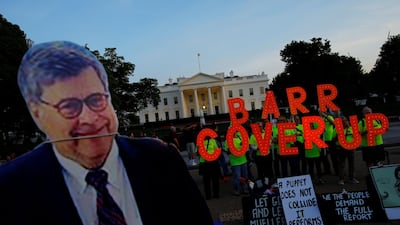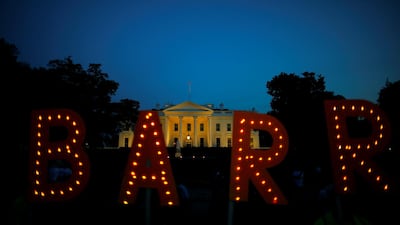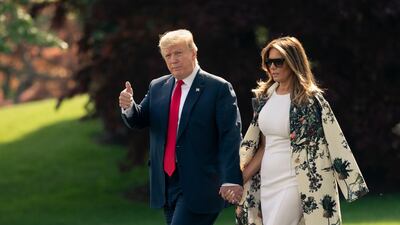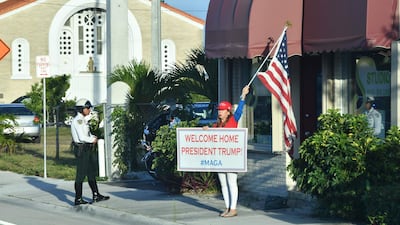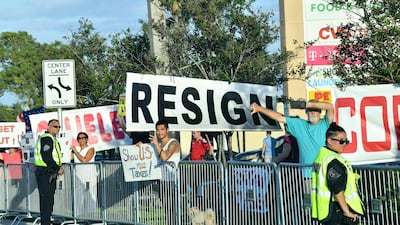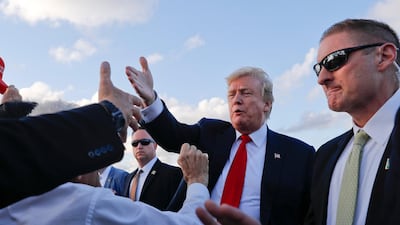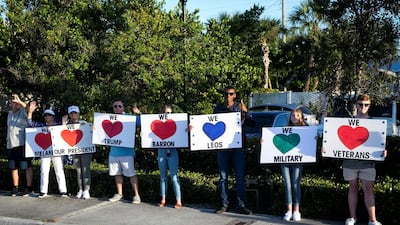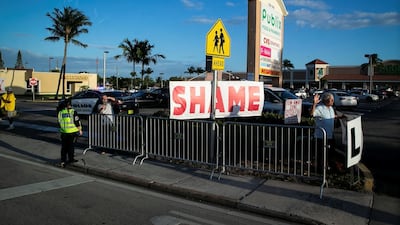A redacted version of special counsel Robert Mueller's report released on Thursday concluded that Russia interfered in the 2016 US election to help Donald Trump.
But it said there was no criminal conspiracy or co-ordination by Mr Trump or members of his campaign team.
The long-awaited publication of the two-year investigation followed a disputed summary released last month, which was seized on by the White House as proof that the president did not collude with Russia and that he had not obstructed justice.
In Washington, Attorney General William Barr said Mr Mueller's report had found that Russia had used social media to sow discord and influence US voters.
Russian military officers from the GRU intelligence agency were involved in a huge email hacking operation. They were charged by Mr Mueller but remain at large. But Russia on Friday dismissed the report once more , saying that it did not show any evidence of meddling on the part of Moscow in the 2016 election.
"As a whole, the report as before does not present any reasonable proof at all that Russia allegedly meddled in the electoral process in the US," Kremlin spokesman Dmitry Peskov told journalists, saying it contained "no new information".
Mr Barr said 10 alleged instances of Mr Trump obstructing justice during the special counsel's investigation, including the possibility of firing Mr Mueller, had been examined.
“I concluded that the evidence developed by the special counsel is not sufficient to establish that the president committed an obstruction of justice offence,” he said.
____________
WATCH: What did we learn from the Mueller report?
____________
But Mr Barr's comments were criticised for being overly favourable to Mr Trump, whose lawyers had been allowed to preview the partly blacked-out version of the report.
The attorney general conceded that he had disagreed with deputy attorney general Rod Rosenstein over the legal arguments used to determine if crimes had been committed.
The president's opponents said that difference was evidence that Mr Barr, who was appointed by Mr Trump, chose to defend him rather than apply the law as he was bound by duty to do.
Democrats said they would push for Mr Mueller to testify in Congress to hear his views of the conduct of people who came under scrutiny during the investigation.
The Justice Department released the report 90 minutes after Mr Barr's remarks and it presented a less favourable position for the president.
Russia hacked the emails of his election opponent Hillary Clinton to damage her campaign and benefit Mr Trump.
People acting for Mr Trump expressed interest in gaining Moscow's help but the special counsel “did not establish that members of the Trump campaign conspired or co-ordinated with the Russian government in its election interference”.
Mr Mueller confirmed that Donald Trump's son, his son-in-law Jared Kushner and his then-campaign manager Paul Manafort met in New York on June 9, 2016 – less than five months before election day – with a Russian lawyer to try to obtain “official documents and information that would incriminate Hillary”.
An email exchange had set up the meeting, which was followed soon after by favourable disclosures by WikiLeaks of emails considered to be damaging to Hillary Clinton's campaign.
The report also captured the pressure that the president was under.
On hearing that Mr Mueller had been appointed special counsel, Mr Trump reportedly said: “Oh my God. This is terrible. This is the end of my presidency.”
The release of the report will deepen the discord in Washington between Republicans and Democrats.
"AG Barr presented a conclusion that Donald Trump did not obstruct justice, while the Mueller report appears to undercut that finding," Democrat House Speaker Nancy Pelosi tweeted.
Mr Trump had preceded his attorney general with tweets, a video and a meme to push his long-declared claims that there was no collusion and no obstruction of justice.
“This hoax, it should never happen to another president again,” he said on Thursday.

